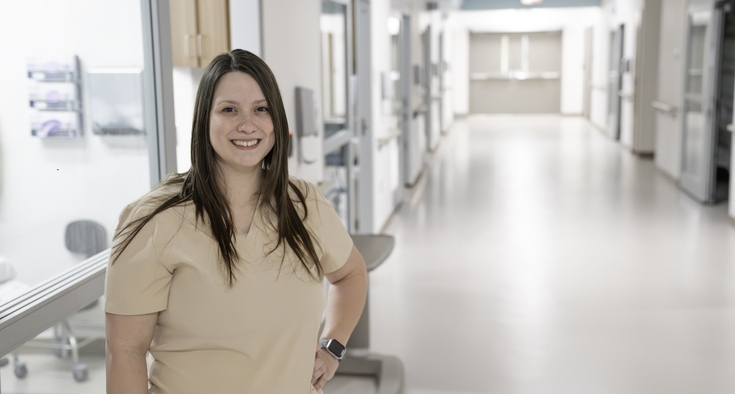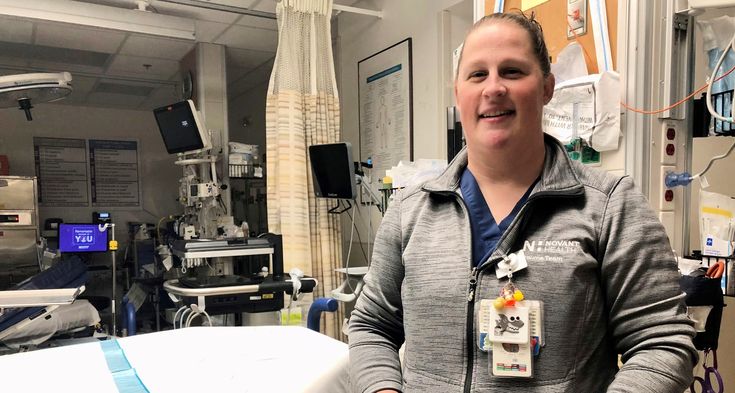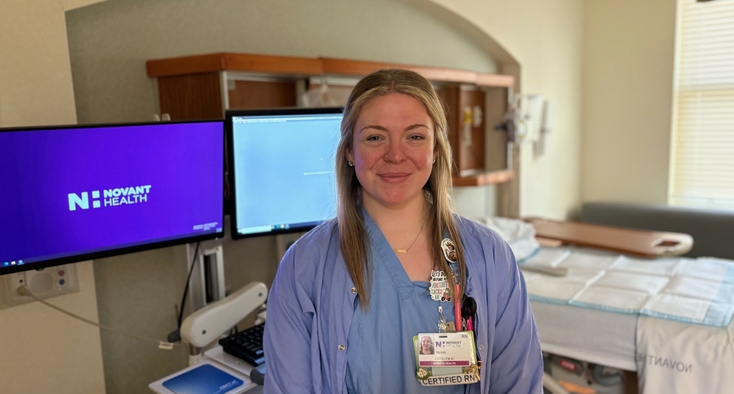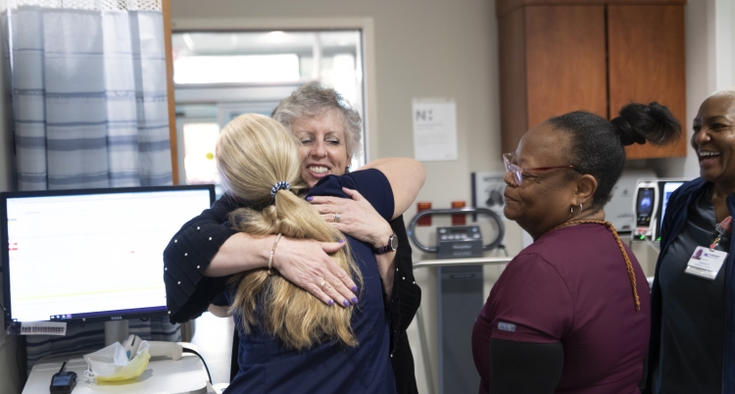Female physicians were nearly unheard of in the 1930s when Dr. Kate White’s maternal grandmother, Dr. Elizabeth Roylance Daley, graduated from Columbia University Medical School and began making house calls.
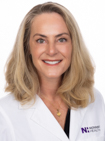
White, who’s practiced at Novant Health Lowcountry OB/GYN - Mount Pleasant since 2002, didn’t imagine she’d go into the “family business” when she was growing up – even though her mother, Dr. Sara Schuh, was a pioneering pediatrician, just as her grandmother had been in family medicine. Neither pushed White into the field they loved.
After college, White moved to London, where she painted houses. “There are some great things about having a circuitous path,” she said. “When you have a wider breadth of exposure, you can meet patients in a different way.”
White’s work is every bit as passion driven as the work her mother and grandmother did. Here’s the story of a medical dynasty.
Find an OB/GYN who's passionate about providing the best care.
Make an appointment with Dr. Kate White, OB/GYN.
Dr. Elizabeth Roylance Daley (Dr. Kate White’s grandmother)

There were only four women in the 1934 graduating class at Columbia University Medical School in New York, White said, and her grandmother was one of them.
One of the others was her friend, Virginia Apgar, who would become an obstetrical anesthesiologist and medical researcher and invent the Apgar score, a method – still used today – for quickly assessing a newborn’s health immediately after birth.
At the time, fewer than 300 women were studying to become doctors in the U.S.
Elizabeth met her future husband, Cecil, in Poughkeepsie, New York when she was 16. Cecil lived on his family’s farm, which he would one day inherit. To prepare, he studied agriculture at Cornell University. Elizabeth was attending Vassar College and would have been expelled if the administration knew she’d gotten married. So, she and Cecil wed secretly. “She felt she’d need to keep her mind busy as a farm wife, so she majored in classics, thinking that seemed liked a good foundation,” White said.
But Cecil became an engineer. And instead of living on a farm, the couple lived in New York City. After big retailers such as Sears and Roebuck discovered that would-be customers who wanted to order merchandise from catalogs were reluctant to pay for a long-distance call, Cecil – then working at Bell Telephone – invented the “Zenith” number, which led to the Wide Area Telephone Service (WATS), a flat-rate long-distance service. Both were precursors to the 800 number. (Yes, people used to pay to make phone calls outside their ZIP code.)
Elizabeth soon grew bored. “She was highly educated, and my grandfather was unusually supportive for a 1930s husband,” White said. “He asked her, ‘What would make you happy?’ She said she wanted to go to medical school, and he told her to apply.”
The couple eventually moved to Bronxville, New York, where Elizabeth ran her general medical practice out of their home and made frequent house calls. She and Cecil had five children, and a couple of them usually joined her on her rounds.
Dr. Sara Schuh (Dr. Kate White’s mother)

Sara Daley, the eldest of the five, followed her mom to Vassar – where she, too, majored in classics. Shortly before graduation, a mutual friend introduced Sara to Fred Schuh since both were heading to Columbia Medical School. They were engaged within six weeks.
Fred became a plastic surgeon, joined the Army during Vietnam and worked as a surgeon in Atlanta. Sara became a pediatrician. Once she finished her residency, she earned a master’s degree in public health (MPH) and ran pediatric clinics in Atlanta.
When the Schuhs “discovered they could go an entire winter without digging their cars out of the snow, they made the South their home,” White said. They became professors at the Medical University of South Carolina (MUSC) in Charleston in 1969.
Fred worked at the U.S. Department of Veterans Affairs before going into private practice. Sara’s MPH was useful when she began running the public health clinic off Meeting Street that served the area’s low-income population. The Fedder Clinic is still in operation today.
She became one of the first doctors in the country to recognize and draw attention to child sexual abuse. “At the time, people didn't believe these things could even happen to children,” White said. To spread awareness of the issue, her mom started the Sara Schuh Lecture Series in Child Abuse and Neglect, which led to the first Sara Schuh Child Abuse Conference at MUSC held in 2009.
The previous director of MUSC’s fellowship program in pediatric abuse and neglect, “Dr. Anne Abel Hull, worked closely for many years with my mom during the early days developing that program,” White said. “Through their pioneering efforts, education in child abuse and neglect became a standard part of the pediatric curriculum, and MUSC subsequently developed a fellowship program in child abuse and neglect that is ongoing today.”
Both Schuhs had lengthy careers. Fred practiced plastic surgery until he was 80; Sara taught at MUSC until she was 82. She died in 2022 at 87. Fred, now 90, “is in amazing shape and very active,” White said, adding that she and her husband are preparing to go on a two-week trip with him and his fiancée.
Sara was one of five siblings, and she and Fred also had five children. Their dinner table was always lively. “There was an emphasis on the arts and history,” White said. “We’d have vocabulary quizzes over dinner for fun.”
Dr. Kate White
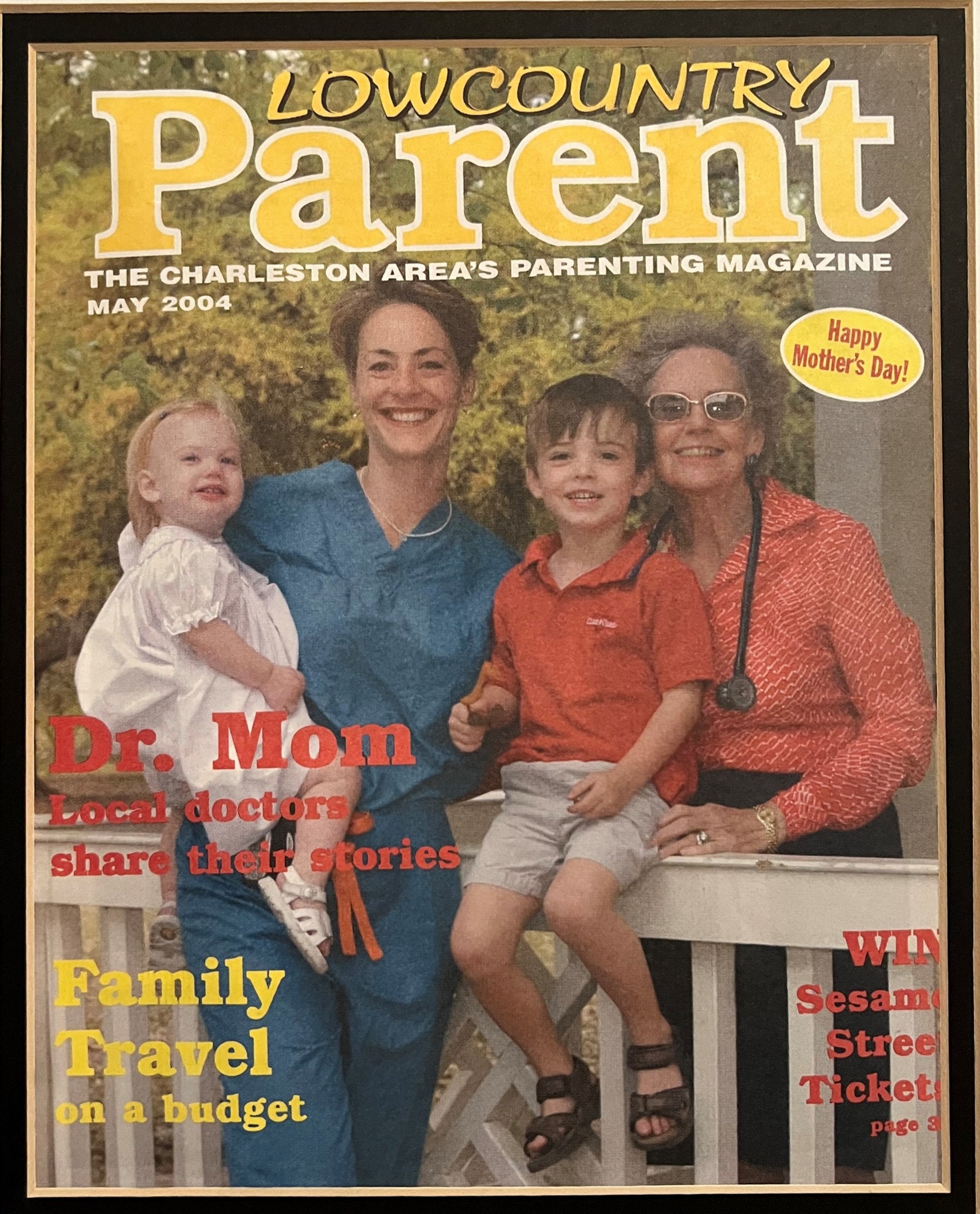
White excelled as a student. At her Charleston high school – Ashley Hall – she gravitated to history and literature. She liked biology, too, and during summer breaks from Drew University, a small liberal arts school in New Jersey, she worked at her dad’s medical practice and became fascinated.
She majored in English, but kept thinking back to a medical mission trip her church youth group had taken to the Dominican Republic when she was 17 – an experience she called one of the most fulfilling of her life. Her path became clear.
In medical school, she discovered she loved surgery – but there was one drawback. “Once you take out someone's appendix,” she said, “you don't have much of a relationship with them. Being an OB allows me to do surgery and have long-term relationships with my patients.”
At this point in White’s career, some of the babies she delivered are now her teenage patients. “What an honor, what a joy,” she said, “to see these young women who I helped bring into the world.”
Like her mother and grandmother, White and her future husband had a brief courtship.
She met Jay White at a church retreat in Montreat, North Carolina, when they were 18. They had one date – at the local Dairy King – and then went their separate ways. After college, Jay worked as a magician in Las Vegas – something he committed to doing until he turned 30, at which point he earned a master’s degree in psychology.
Six years after they met, Jay tracked down his Montreat friend. Six weeks after reconnecting, they were engaged.
They’ve made their home in Mount Pleasant, South Carolina – in the house where White grew up . She and Jay have two kids – a daughter, Crawford, majoring in geology at Clemson, and a son, Jack, who’s in Army Reserve training for communications intelligence and plans to ultimately pursue an MBA.
New career direction
While White still finds tremendous joy in delivering babies, there’s something more urgent she wants to focus on in the next phase of her career. And it’s deeply personal.
“In my 40s, I started having some arrhythmia (irregular heartbeat),” she said. “I ignored it, even as it grew more intense and more frequent.”
She eventually saw a cardiologist who told her, after she’d worn a cardiac monitor for a week, that her condition was due to stress and was no cause for concern. Reassured, she went right back to ignoring it.
But her friends were experiencing the same thing. So were her middle-aged patients. She began to question the cardiologist’s “diagnosis.”
“My life didn’t suddenly get stressful when I hit my 40s,” she said. “From the day I started residency, I had a stressful life. The only thing that changed is that my ovaries weren’t working the way they used to. It’s all hormonal. Your body has estrogen receptors everywhere.
“For years, science has told women the symptoms of menopause are ‘all in our head,’” she said. “That’s true – just not in the way doctors meant it. Anxiety, depression – all those things – happen because of those receptors in our brains acting as neurotransmitters. Suddenly, these big bursts of estrogen are happening and causing sleep disruption, hot flashes, mood swings, quickened tempers, brain fog.
“Menopause causes changes in marriages and relationships. It makes women unable to function in their jobs – at the very time they should be at the top of their careers. We’re literally losing people from the workforce.”
When one of White’s friends – Dr. Mary Claire Haver, author of “The New Menopause: Navigating Your Path Through Hormonal Change with Purpose, Power, and Facts" – invited her to lecture at the ‘Pause Life conference on midlife sexual medicine in Texas, she was “accosted by women who had a desperate desire for education.”
What she knows now is that women's cardiac health is better than men’s until menopause, she said. “When our hormones start changing, our cardiac health becomes worse than men’s.”
She’s called to help people understand something that’s been misunderstood for too long. Her mother started a lecture series. She and Jay are starting the modern equivalent of that – a podcast.
Set to launch in late June, the couple and their guests will discuss menopause and how it impacts relationships. “Since we’re an OB/GYN and a marriage and family therapist, we’re calling it ‘Heads & Tails,’” White said. “We’ll cover midlife relationships and how to navigate them and answer questions about how menopause can lead to strained – even doomed – relationships. But with validation and knowledge, women can turn from midlife crisis to midlife recalibration.”
Follow on Instagram at @drkatewhiteobgyn and @headsandtailspodcast.
In the Charleston area, women’s health issues are getting the attention they deserve
Dr. Kate White, a Menopause Society Certified Provider, looks forward to practicing at the new Center for Women’s Health, a state-of-the-art medical facility now taking shape next to Novant Health East Cooper Medical Center. It’s set to open the summer of 2026.
“Comprehensive midlife care will be a real focus,” White said. “We’re embracing a much fuller spectrum of women's health needs in the community – from heart disease to osteoporosis to the pelvic floor and postpartum recovery. I’ve been saying for a while that we needed a clinic like this. And Novant Health is making it happen. I’m really grateful.”
The 40,000-square-feet center will offer a full spectrum of women’s health services – including OB/GYN care, mammography, advanced breast diagnostics, urogynecology and more – all under one roof.
White can’t help but think of her mom and grandmother and how proud they’d be to see the clinic dedicated to women. “They’d be so excited to see something called a Women's Center,” she said. “They would love to know someone saw the value in it.”







